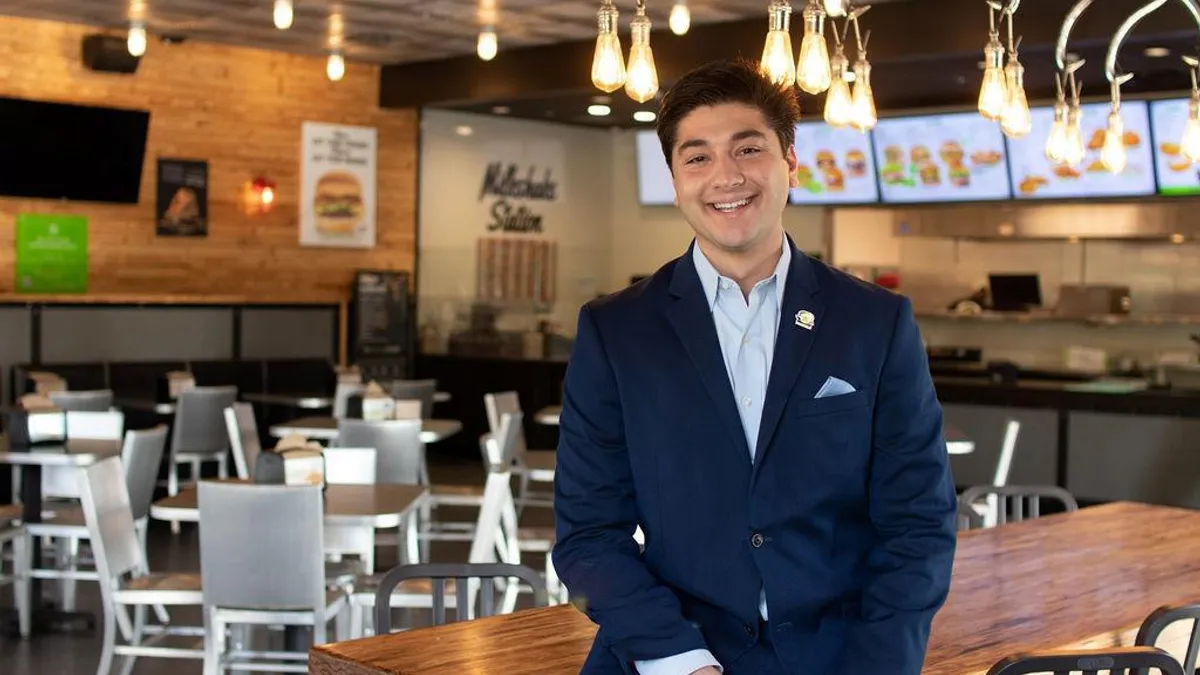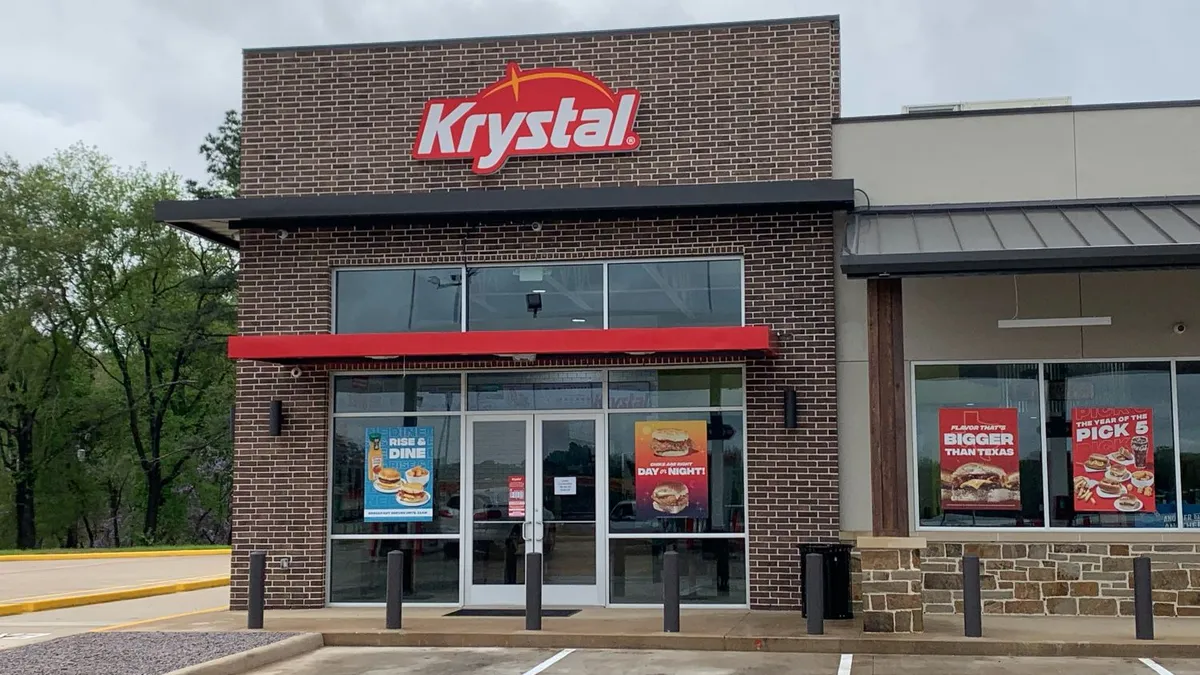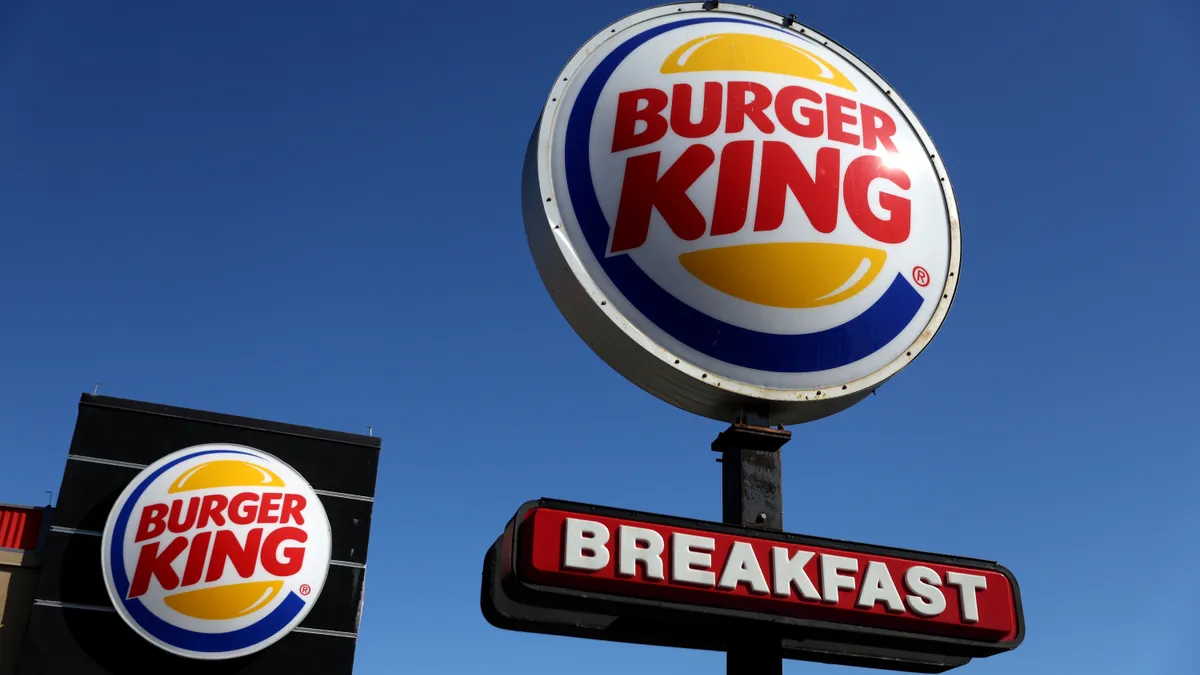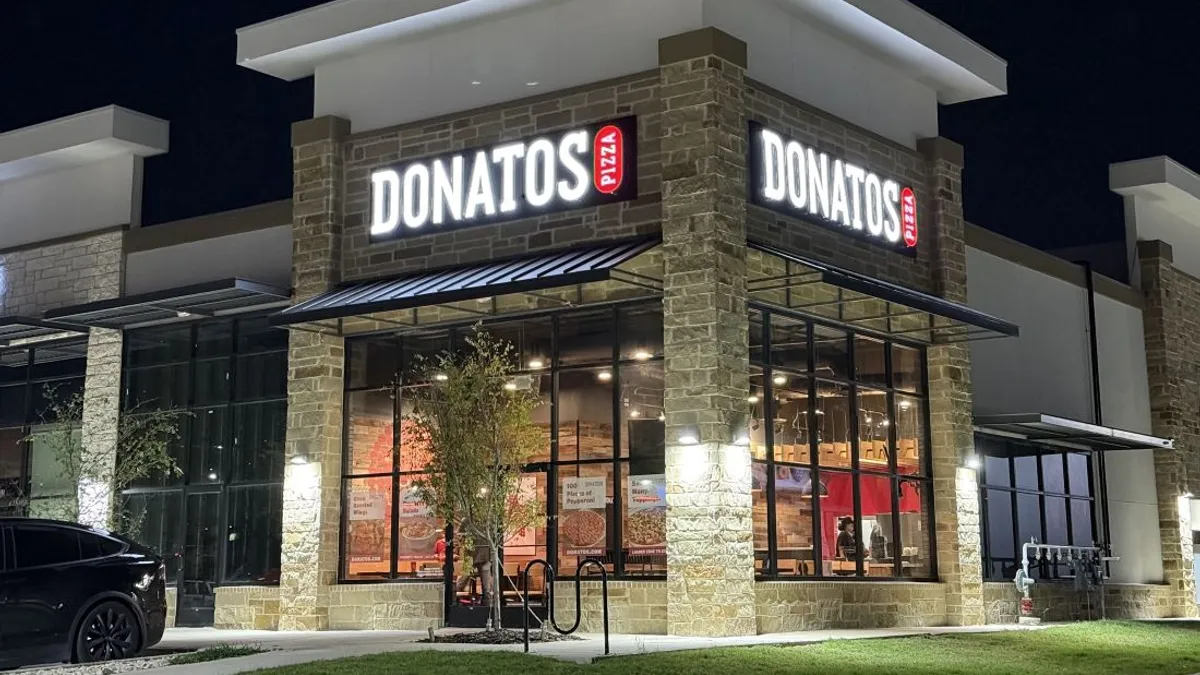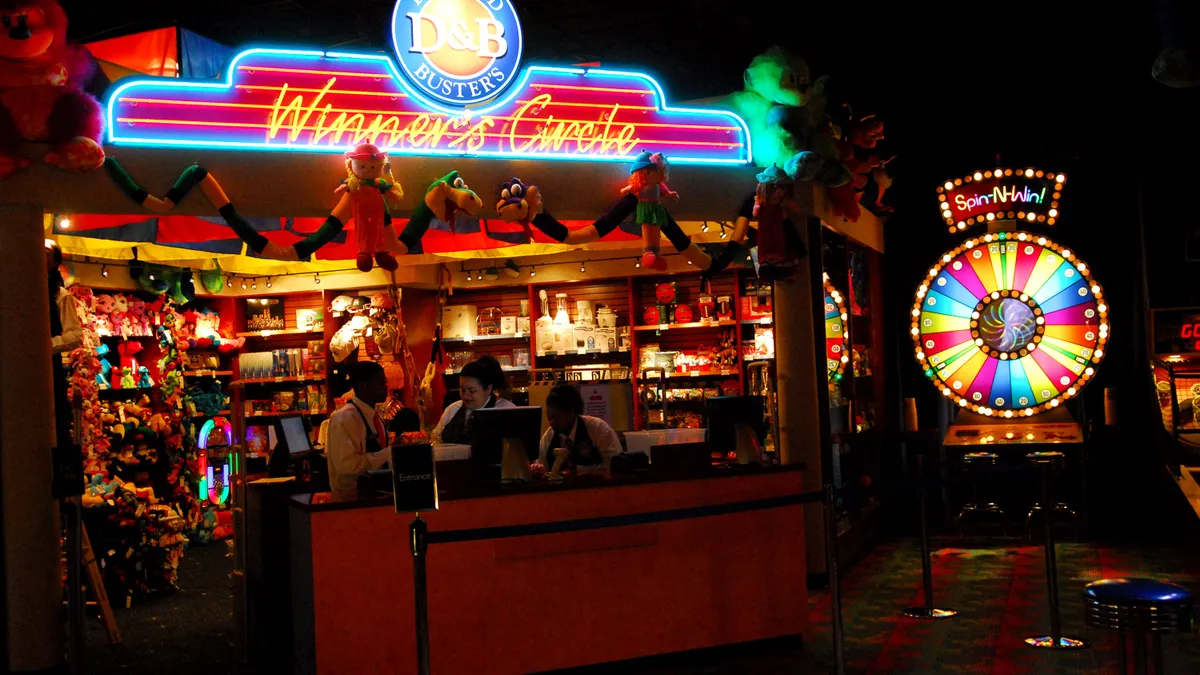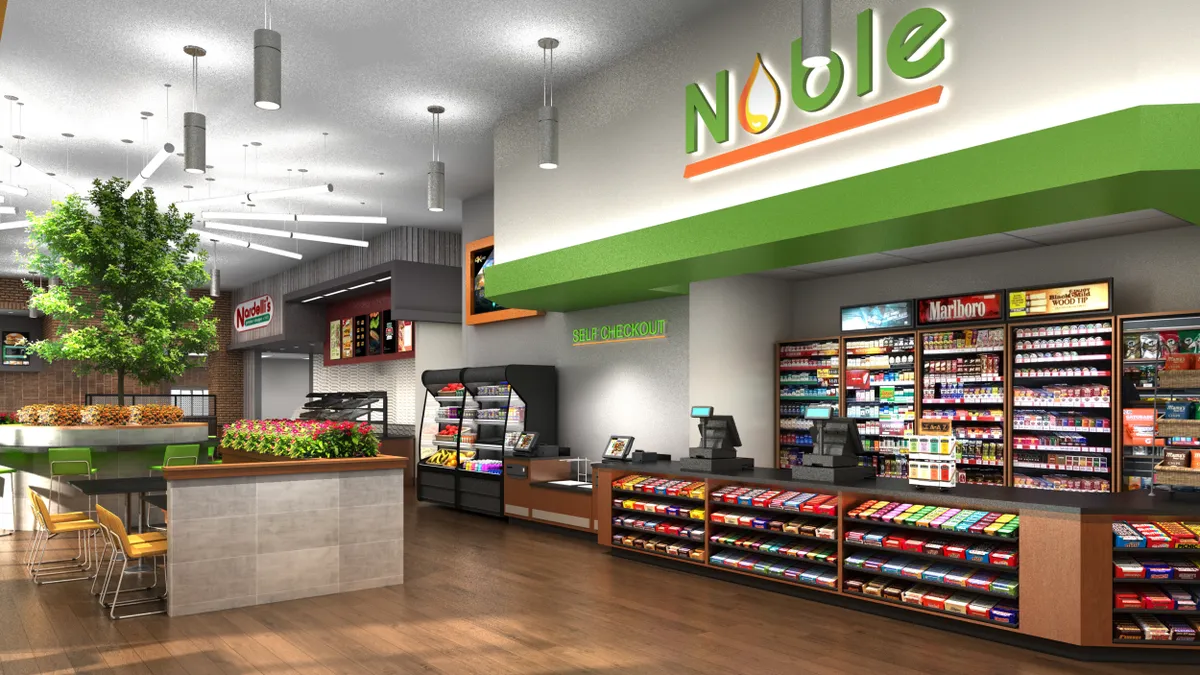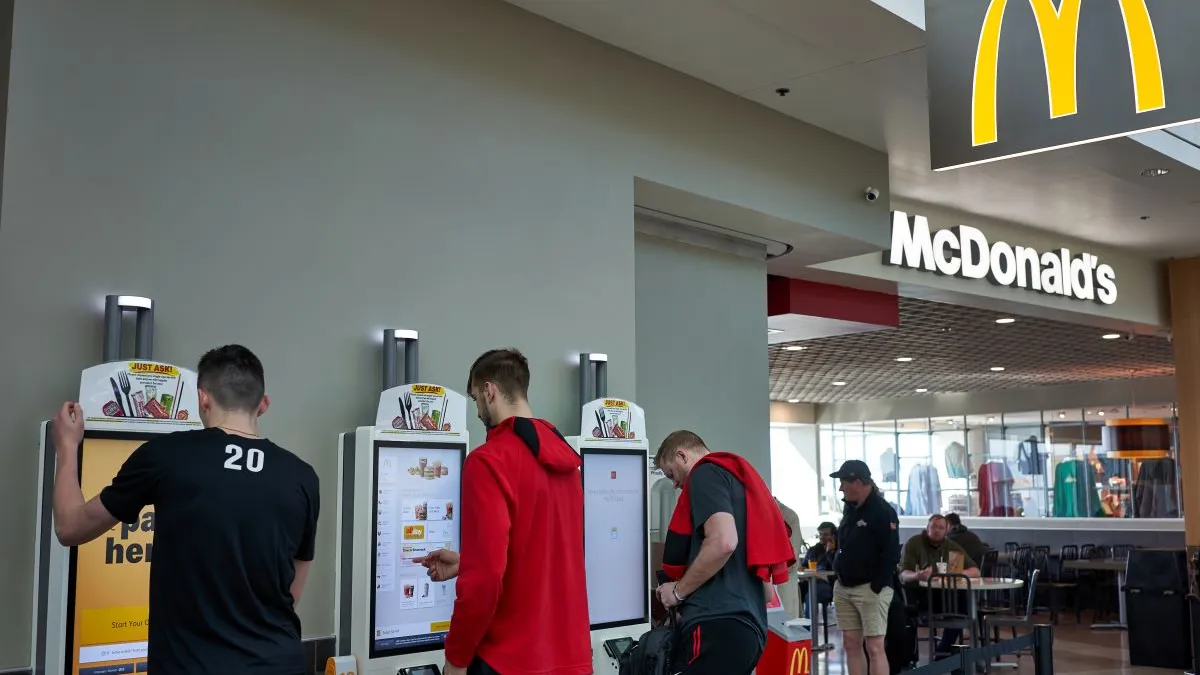As many chains shift their focus from growth to survival for 2020, fast casual BurgerFi is reaching for a much loftier benchmark — to be the first burger chain to go public since 2017. The 125-unit BurgerFi hopes its recent $100 million deal with "blank check" company OPES Acquisition Corp., which will enable BurgerFi to become a publicly traded company, will push it beyond its home region of the Southeast and into the national spotlight with 500 units by 2025.
For a chain that prides itself on providing antibiotic-free natural fresh beef, it wants to capitalize on diners' increased interest to eat healthier while also capturing a growing spending pattern for comfort foods like burgers, fries and milkshakes. And its projections show rapid growth, with an estimated $40-million-plus in net cash to support capital expenditure expansion. From 2019 to 2021, the company estimates its net revenue and adjusted EBITDA will have compound annual growth rates of 36.4% and 77.2%, respectively.
Charles Guzzetta, who has been with BurgerFi since its foundation in 2011 and was promoted from chief brand development officer to president following the close of the late June deal, spoke with Restaurant Dive about why BurgerFi decided to go public amid an unprecedented economic downturn and what plans it has to come out ahead of competitors.
This interview has been edited for clarity and brevity.
RESTAURANT DIVE: Why is now a good time for BurgerFi to make this transaction with OPES and go public?
CHARLES GUZZETTA: We've been investigating and looking into several different expansion opportunities for the last two or three years. What OPES was able to bring to the table that many before were not able to is the commercial real estate and development arm of their business. We believe that the combination of a powerful real estate development company mixed with a fantastic fast casual brand is the perfect marriage when it comes to growth and expansion in a rapid method.
We actually think that it's a very good and strategic time to go public. People are so much more hyper-aware of cleanliness and sanitation and social distancing. That dictates everything that they do on a daily basis, including their dining habits. To be part of a brand like BurgerFi that focuses on cleanliness and sanitation and food safety as our core DNA now is really an opportune time for us to highlight those values.
I think most companies will take a step back, sit down and look at ways to reassess or re-evaluate their operations. We actually looked at the current [economic] situation [as] less of an opportunity to reset and more of an opportunity to re-emerge.
It's hard to talk about the failure of other brands, but restaurant closures do create opportunity for expansion and, for us, that's exactly what we're looking at. Where there's a lot of empty storefronts because of the coronavirus, that can create greenfields for our brand to open our restaurants. There are some smaller regional brands that are maybe not going to be able to weather the storm of coronavirus that could create interesting opportunities for us. For companies like ours, we're not in a liquidity [crisis] going into coronavirus and we're able to withstand the downturn.
What are the benefits of going public?
GUZZETTA: First, our ability to leverage our buying power. As a public company, we can get a little bit more aggressive when it comes to suppliers, our venders and our partnerships.
Number two would be leases and development in real estate. The partnership with OPES and their knowledge and expertise in the commercial real estate space, combined with being public, will allow us to claim exclusivity rights. It'll give us better negotiation skills when it comes to landlords and leases and development. And more importantly, it will help us not just find existing real estate that we can go into today, but be on the forefront with developers that have projects that are three, five or 10 years out, that are still dirt today, but are going to be an enormous lifestyle center. Developers will already have BurgerFi in mind for their centers.
Third is strategic partnerships, and I mean that on a few different levels. Number one, partnerships with companies like HMSHost and Reef Kitchens. Those are two major strategic partnerships with BurgerFi and going public will give us the ability to meet and speak with and do business with other big companies. It also helps us when it comes to franchise development, [and] attracting major multi-unit operators looking for the next best fast casual concept to add to their existing portfolio. Going public will help us get in front of those organizations.
And lastly, going public is going to give us the ability to recruit talent that maybe previously we didn't have the ability to attract. It's going to bring in a whole new talent stream into BurgerFi that can help us get to the next level from both a restaurant support center side as well as the specific restaurant-level side recruiting the best general managers, regional managers, regional operations leaders and people of that caliber.
We can expand our corporate footprint and have the ability to enhance the support for our teams, whether that is development support, human resources, benefits, or the ability to promote people through the ranks. Growing our footprint so aggressively and so quickly will not only allow us to bring in new talent into the organization, but also give us upward mobility for our existing talent.
What are you anticipating investor interest will be like as you become a public company?
GUZZETTA: There's been a lot of public interest in the burger space over the last few years, from Shake Shack going public to Habit Burger going public and then later getting acquired by Yum. And then, of course, Smashburger being purchased by Jollibee. I think in our little niche of the better burger industry, there's been a ton of interest. What I think is going to create interest in terms of investors specifically for BurgerFi is our premium and quality nature of our business.
There's a common misconception in our world. Consumers misinterpret fresh beef with natural beef. Fresh beef just means that the beef is not frozen. Natural beef is a whole different animal. That means that the cattle have never been exposed to steroids, hormones, antibiotics, chemicals or additives. It's grass fed, free range, humanely raised, and then of course, never frozen.
Never frozen for us is the bare minimum. We go so much further than that when it comes to the quality natural 100% American Angus beef that we purvey. And what the Chain Reaction Report: Burger Edition in 2018, which ranked the top 25 burger chains in terms of antibiotic use, showed was that our competitors serve beef that is not frozen and they tout it as fresh beef, but they don't go the extra mile. Twenty-two out of the 25 were in the F column, one brand was in the D column, and then on the complete opposite side of the chart, it was BurgerFi and one other brand in the A-column. So I think that point alone will be of major interest to investors.
How well positioned is BurgerFi to come out of the current economic crisis?
GUZZETTA: From March and April to where we are today, it's been a roller coaster. We're now seeing since May, our same-store sales trended up. A lot of brands in the fast casual industry in March and April were a big hit and then coming into May and June, a lot of brands either continued to decline or really plateaued.
Since March and April going into May and June, we've been able to literally cut the same-store sales deficit in half. In some cases, we have several restaurants — upwards of 10 or 12 — that are comping positive versus the same period last year.
In Lawrenceville, Georgia, in the month of June, a restaurant was up 28% positive versus the same June in 2019, which is unheard of in normal circumstances, never mind during the pandemic.
Why do you think BurgerFi has been performing so well?
GUZZETTA: We were fortunate in that not only did we have partnerships in place with major delivery service providers around the country, but also we had direct technology integrations through our online ordering portals into the POS registers at the restaurant level.
We've seen some pretty incredible stats when it comes to our third-party delivery during the coronavirus period. We've seen a positive 30% increase in order volume in delivery for the first half of 2020 compared to the first half of 2019. We’ve seen a positive 57% increase in delivery sales volume during that period. Those are pretty substantial numbers to be able to see, especially during this global pandemic. It's really promising for how we're going to fare coming out.
I think having those technology integrations in place coming into coronavirus was nothing more than a lifesaver. I think we would have been in a dire situation. By being ahead of the trend when it comes to third-party delivery, online ordering, our mobile loyalty app — having all of those in place as primary drivers of revenue over the last couple of years really came in handy during the last few months.
Where do you expect BurgerFi will be in the next five years?
GUZZETTA: We're looking for massive expansion. We're looking at opening an additional 10 BurgerFi restaurants before the end of this year, and then we are projecting to open more than 50 BurgerFi restaurants in 2021, which is a combination of corporate and nontraditional units and franchise units.
Fifty restaurants at a 120-unit brand is a significant jump. We think that BurgerFi can get to a 500-plus unit restaurant chain over the next five years and we have all intentions of meeting those numbers.



